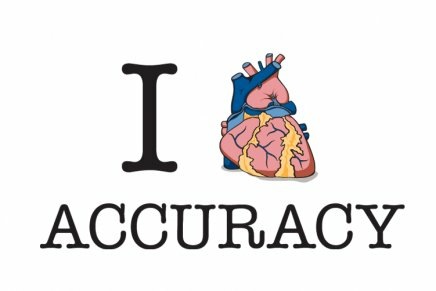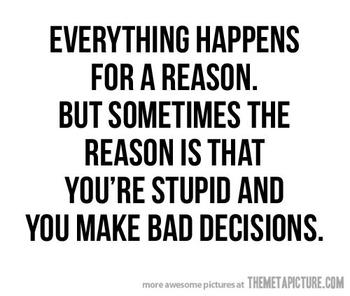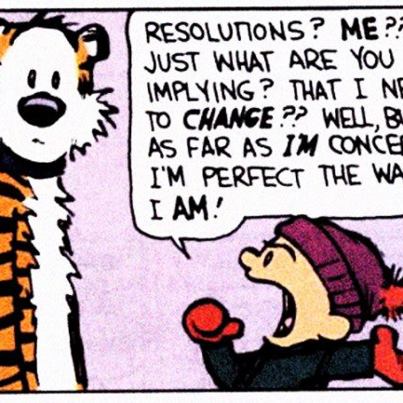I first heard about the Enneagram several years ago and was reminded of it again a few years later when I heard Ian Morgan Cron, the author of the popular Enneagram book, The Road Back to You, speak at a conference. His talk was fun, winsome, and I wanted to like the concepts he espoused. I had taken an Enneagram test online many years before and I had gotten a 5. But in talking to many of my closest friends at that time many of them labeled me a 7. However, talking to work colleagues who only know me in that context, it seems they think I’m a 4 and one at the time said that I’m definitely not a 7. I’ve taken five tests in all and gotten 5, 4, 7, 3, and 6. That’s right, I’ve never gotten the same result twice.
I’m aware that Enneagram enthusiasts will all say that either that’s because tests aren’t really accurate, or it just means I don’t actually know myself, or I haven’t studied it enough, or I haven’t read the right book or taken the right test, or I need to spend more time with it all so I can really understand what I am. I’ve heard it all. So I have spent a long time – years in fact – evaluating the Enneagram and I want to share my conclusions. This blog entry has taken me four years to write, so please believe me when I say I don’t say this lightly, but first let me address those Enneagram adherents.
If you love the Enneagram, please don’t @ Me
Look, I’m not telling you not to like it, but I am asking you to question it. If you love it passionately then you’re probably not going to love this blog entry. So let me start off by saying this: If you truly, deeply find it helpful I’m not here to tell you that you’re wrong for that. I most likely won’t convince you of anything, but before you go, I would ask you to please consider one thing: Is it possible that there are more than these 9 personalities? And for the Christians, is it ok that other Christians don’t want to be defined by something non-Biblical, even if you do? I’m just asking you to consider these things. If that’s all you do then feel free to stop reading here. Again, I’m not trying to convince you that you shouldn’t like the enneagram if you do.
I only ask that if you continue reading that you afford the same respect to me that I will try to do to you. I do realize that #NotAllEnneagramLovers applies here. I might also ask the courtesy of turning off your brain’s Enneagram typing system. I know you’ll try to put me in a box the longer your read this (you may have just decided that I’m a 4 because I said ‘put me in a box’ for example, or maybe I’m a 5 because of how verbose and cerebral my wording may seem.) I’m asking you nicely, please assume for a moment that I’m just a human and not a number.
Also keep in mind that I’m explaining why I don’t like the Enneagram, not why the Enneagram is “wrong.” If you read it as me saying “the Enneagram is wrong/bad/stupid for these reasons then you’re not reading it the spirit that I’m trying to write it. I might say I believe it can be “hurtful,” for example. I am not saying it always is. If you stick around for the whole entry I promise I will talk about a few things that I do find appealing about the Enneagram, so maybe that will motivate you to get to the end.
1) There is no credible psychological research that supports the Enneagram
When I first decided to write this entry I knew it would ruffle some feathers because I have many friends who love the Enneagram. And I debated starting with this objection because it’s a very harsh reality, but I feel that it must be said up front.
There is no sound psychological evidence that backs up the Enneagram. In my experience of reading about and discussing the Enneagram, when adherents refer to “researching” the Enneagram they’re talking about reading books by Enneagram proponents and not conducting actual psychological research to try to determine the scientific validity of the typing system.
I will hasten to say that the same could be said for the MBTI, however the difference there is I actually like the MBTI (wink)… no ok, I will have more to say about the MBTI in relation to all this further down, just stick with me for now.
I actually did search a few academic databases and found startlingly few works in peer-reviewed journals that seem to offer any real validation to the nine types, let alone the idea that they are either mutually exclusive or collectively exhaustive. What research has been done is either inconclusive (one Canadian study claims to affirm the enneagram, for example, but actually only affirms that the people in the study believed in personality types) or too small, outdated, and questionable in their methods. The only real study of any size is almost 40 years old and seems to only be seen as being valid by enneagram proponents, not the academic psychology community.
What I did find was many social science researchers questioning the enneagram, if not out right dismissing it. Perhaps the best summary of this when encapsulated when Rebecca A. Newgent wrote her Ph.D. thesis entitled “An investigation of the reliability and validity of the Riso-Hudson enneagram type indicator.” In the abstract she states “While some research on these enneagram systems has been conducted, [she lists the studies] limited empirical validation has occurred.” And even her own study is largely inconclusive, only had a small sampling, and was weakened by its reliance on self-report and lack of diversity of its volunteers.
In her discussion she writes “It is generally undesirable to have ipsative scales because the scale affects the psychometrics estimated” and continues to expound upon why this weakness lead to her results. In other words: when personality assessments require you to choose between multiple desirable options regrading yourself (IE: am I more spontaneous or reliable?) they’re largely seen as unhelpful assessment tools as they fail to capture the complexity of humanity because people are more likely to select what they see as the better trait. I might feel spontaneous at that moment, or I might want to be spontaneous, or I might’ve been recently told by someone who doesn’t know me well that I am spontaneous, and I might undervalue being reliable while still actually being reliable, I might center my identity around being reliable but I might still berate myself for not being reliable enough when I make one small slip up. And this is just one of dozens of questions that are asked in these kinds of assessments.
I asked a clinical psychologist and a licensed counselor about their opinion on the Enneagram and neither of them had ever even heard of it. Both of them said approximately the same thing, however: these tests can be useful for a person to think about their personality and get to know themselves, but they shouldn’t be taken as hard and fast rules of nature.
The discussion in the aforementioned study also points out another weakness of the Enneagram. You have to pick a dominant type – you can’t mix and match things from across the circle – which leads me to my next objection-
2) It feels less like “typing” and more like stereotyping
The premise of the Enneagram is that a person has a “dominate type” which should become apparent as you “research” the Enneagram. Yes, you can have “wings” (albeit only the numbers to your left and right), and you might have slightly different healthy and unhealthy behaviors based on which number is across the circle from you (which might be the most wildly arbitrary thing in the whole typing system; more on that later) But you can’t say that I’m a 1/8 even split. Or a 4/7. So instead of seeing the broad spectrum of your various traits and comparing them to others, you’re lumped into a stereotypical group and are assigned several arbitrary behaviors that make you “healthy” or “unhealthy.”
If you say to an Enneagram adherent that you don’t at all feel like you fit in with the description you’re given, save for a couple of descriptors, you’ll be told that not everyone fits every part of their description. So what if you don’t fit more than 30% of any of the traits of any number? What if you’re exactly 50/50 of two different numbers that have no relationship?
They’re not mutually exclusive. They’re not collectively exhaustive
Types that have no official relationship can have a huge amount of overlap. 1’s are perfectionists – well, often perfectionism goes hand-in-hand with being achievement-driven and vice versa, but those two types have no relationship in the Enneagram. Every type has another type in another part of the circle that could be coupled with it if cross-typing were allowed, but instead, most Enneagram authors espouse that people only have one dominant type.
I’ve found other people like me who, despite being introspective, emotionally healthy people who have done a great deal of self-assessment, don’t identify with any of the types – or might equally identify with several. Despite this, there’s no “spectrum” on which these types exist (unlike MBTI or the DISC assessment), which doesn’t give the wiggle room for the many complexities in human personalities.
3) The types are often used as either a bludgeon or an excuse
While I’m not saying there is no appropriate use of the Enneagram I can say for certain it has many improper uses – though this is definitely true of all other personality assessments as well. I personally have seen more of the system’s abuse than good use.
A bludgeon:
“You’re not a 2! You’re a 9!” or “You’re not a 7, you’re not that fun.” or “Well you just don’t know yourself, that’s why you haven’t figured out your type.” or “With as much as she argues? Definitely an 8” or “Have you really researched it? because I think it applies to everyone.” or “Ignore him, he’s just being a 1.” or “Sometimes it just takes a really long time for you to accept your type.”
To the people who say these things: Do you realize that every time you assign a type or tell someone they’re not a type you’re subtly insulting them? Each type has some positive characteristics and some really negative characteristics (except 6, which might be why the study I mentioned in point one found it to be the least valid type in self-assessments due to its vague-ness), and in declaring someone’s type you’re insinuating some pretty strong intimate knowledge of that person – depending on which book you read. Also, if you say that because someone doesn’t feel they fit into one of the categories, that means that they don’t know themselves (also suggesting that you clearly know them better) is not only insulting, it’s arrogant. These uses of the enneagram aren’t helpful; they’re hurtful. Implying that because someone doesn’t identify with your system of categorizing people and therefore are either ignorant, deluded, or in denial is not edifying in any circumstance.
An excuse
“You know that because I’m a 4 I’m not going to react well when you say that kind of thing to me” or “you have to forgive her for being a jerk, she’s an 8” or “you can’t expect any different from him, he’s a 9 and they’re kind of lazy” or “Look you just have to get out of his way, he’s a 3 and he has to do it his way.” or “I know the only thing I mentioned was the spelling error, but I’m a 1, I only see your mistakes.”
Part of this is because Enneagram really drives home the belief that personality is static. To be fair, most type indicators seem to adhere to this. There was one book of those I read that tried to say personality is what you build to protect yourself like a cast around a broken bone – that was a very different take that totally clashed with the other books I’d read. Either approach doesn’t really get at the complexities of personality. If you believe that your personality is only a result of your victimhood then you’re going to lean into the victim mentality. And if you believe that your personality is static then it makes it easy for you to rest on your laurels and just say “it’s who I am” and you often either become a victim of your own traits or others do.
If your goal in taking a personality assessment is to be able to say that you’re never going to change, then you’re doing it wrong. Yes, we all have quirks that aren’t likely to change, but that doesn’t mean that we do nothing to mitigate them. Real maturity is just as much about doing things that don’t come natural to you as it is about accepting who you are. Just because it’s your natural response, doesn’t mean it was the right response. And just because you have a particular number assigned to you by some guys who made a up an assessment in the 60s doesn’t mean that you can’t do things differently! Which leads me to my next issue…
4) The “ancient” origins enneagram are false
If you’re an Enneagram apologist and you’re still reading you’re probably wondering if I’d read all the same books you have. If you’re like most I’ve encountered then you have a specific one you want me to read that you think will change my mind on this. Up to this point, the more I read the less I’m convinced and so far I’ve read three different books on the topic. It’s amazing how they somehow manage to both say the same things while still contradicting one another, but one thing all of them claim is that the Enneagram is an ancient typing system. This is easily debunked.
These books make vague references to ancient writings, which, when researched, bear no resemblance to the Enneagram of today. The only idea most of these “sources” had in common with the modern Enneagram is the concept of a limited number of types of people – meaning that these same ancient roots have equal in common with every other personality assessment in use today. And usually the “types” in question aren’t personality types, but were more abstract ideas about the soul, spirits, or facets of culture.
The word “enneagram” wasn’t even really popularized until the 20th century by George Ivanovich Gurdjieff, an Armenian new-age spiritualist, but his talk of it still didn’t look much like the Enneagram we know today. It wasn’t until Óscar Ichazo invented the first modern take on the Enneagram in the 1960s that we get writings that look like what you’d read about in contemporary Enneagram literature. He had a student, Claudio Naranjo, who broke with him and started teaching the Enneagram himself in the 70s – Ichazo said that Naranjo’s Enneagram wasn’t legit, that he – Ichazo – was the only one who taught the real Enneagram, because he wanted people to come to his school and pay him to teach them about it, but he couldn’t claim a copyright on it without admitting that it was not ancient knowledge – which was a big part of his sales pitch. It’s Naranjo’s teachings that all the books, tests, and seminars about Enneagram are based on. What’s more is Naranjo actually is on video saying that the Enneagram was dreamed up by Ichazo.
One of Naranjo’s earlier set of students was Jesuit priests who integrated Christian beliefs into the Enneagram, such as associating the nine types with the seven deadly sins, which later prompted some Christian authors to erroneously claim that the seven deadly sins are a potential source of the “ancient” Enneagram. In reality, there is no hard historical evidence of any concrete link between the Enneagram and Christian teachings before 1970.
So, no, this specific typing system isn’t ancient at all. In fact, it’s predated by Pepsi cola and Nintendo (google it, it’s true!) That alone doesn’t invalidate it, but it does call into question the wisdom of some of the authors who continue to espouse its ancient origins despite the lack of any real evidence that there is any true connection between the Enneagram invented in the 20th century and any ancient writings.
And while I don’t like to be an alarmist about these kinds of things, I do feel that we should all consider the claims of former-Occultist-turned-Christian Marcia Montenegro, who has been interviewed on several podcasts regarding the ties that the Enneagram has to new-age spiritualism and the occult. Here’s an interview with her on Cultish.
5) It’s a poor typing tool
When I take the DISC assessment, I get results similar to the first time I took it. When I take MBTI variants, I get similar results. However, when I took an assessment for the Enneagram, I never got the same result twice.
Those in favor of the Enneagram have told me that this could be because I’m not taking the correct test, or because I don’t know myself well, or even because tests don’t work at all for typing the Enneagram and the only way to discover your type is by reading more books about it until you accept the category you fit into.
Regardless of which is true – all of these statements mean that Enneagram systems aren’t very good at fitting people into its various types. Because there is no definitive test, there really isn’t a definitive understanding of each type. While there are a handful of traits that most authors agree on, most authors have pretty different nuances in their understanding of the types. Reading the description of a 6 in one book can be pretty different from the description of a 6 in another book.
Of course, the basic descriptions remain the same across books. For example, type 2 is a helper who can tend toward martyrdom – this seems widely agreed upon. At that level, those descriptions feel less like types and more like horoscopes since they’re so general, but they’re hard to argue with. However, the types really start to break down when each author does their own take on what specific secondary traits are manifested in a “healthy” and “unhealthy” 2 – often getting so caught up in the minutiae of the type that it decreases the number of people who will read and say “oh that is me.” Continuing with the 2 as an example. Most of us know someone who is extremely helpful, but can tend toward martyrdom – those two characteristics often go hand in hand. In The Road Back to You, Ian Morgan Cron tells a story about a supposed 2 who bought a car for a family without asking them – this is an example of a 2 who often is helpful, but only in the ways that they want. Well, I know some helpful people who still struggle with a martyr complex and have that characteristic. I also know others who don’t. “Ah yes,” adherents will say, “that just means they are healthy.” Well, yes and no. They still might have a big struggle with anxiety – which is a chief characteristic of a 6. “Well, not every characteristic fits every person of that type,” adherents will suggest, but this occurs to the point that I don’t feel comfortable saying – or even thinking that the people close to me fall into these types as I find most people might have 2-3 characteristics of any given one of these types at most.
In addition, the fact that they can be frustratingly rigid and the arbitrary relationships between these different types make them confusingly fluid at times, but I’ll get to that in the next section.
Most typing systems have some level of flexibility in them, but the required flexibility to accept the types in the Enneagram strains credulity to me. I had a person I worked with tell me he thought I might be a 4 – I read the description of the 4 and found part of it to be somewhat like me – or at least I could see why he would think it was like me – and the rest to not only be unlike me, but rather repellent to me. I won’t get into those specifics as I don’t want to insult people who feel they have those characteristics. I don’t see how I could claim to identify with a type where half the description I can kind of see, but the other half I not only don’t identify with, but I actually don’t really even like. I also don’t see how I can identify as a type when the person hearing said Identification might be thinking of a different set of characteristics depending upon what book they’ve read, or what experience they’ve had with other people who identify as that type – that, in my opinion, makes it a very poor typing system.
6) The relationship between types is arbitrary
Ah, but Will, you might say, there are “wings” and also possibilities that people’s relative stress or emotional health might cause them to act differently – that explains why people have all these different characteristics which may seem inconsistent at first to the less trained eye.
In the Enneagram there are relationships between the different types that add to the tangled web of complexity – such that while they can be frustratingly austere (there’s no room for a person to be an even mix of two types) they can also be staggeringly fluid. For example, a 7, if “healthy” can take on the good characteristics of a 5, but if unhealthy OR stressed out (depends on who you ask, and no admission that these are two are wildly different things) they can take on the negative characteristics of a 1. A 1, if healthy can take on the positive characteristics or a 7, but if stressed/unhealthy can take on the characteristics of an unhealthy 4. Why? Because that’s the way they fall around the circle. Seriously. That’s the only reason for these relationships.
I haven’t heard a logical reason for these relationships between the types. In all three of the books I read, as well as the materials provided by the Enneagram Institute, there is absolutely no explanation given for why these supposed relationships exist. They just are. What’s more – these explanations make typing nearly impossible, but provide Enneagram adherents with a bevy of tools to keep the ball in the air when discussing the types with skeptics.
I know a person (really well) who fits a lot of the description of a 9 but occasionally acts like a 6. So an Enneagram proponent might say well he’s an unhealthy/stressed 9 because an unhealthy 9 takes on the characteristics of a 6 – but I can tell you that this is one of the healthiest people I know and, if anything when stressed he takes on the characteristics of a 2 – not the unhealthy characteristics of a 2, mind you, in fact he would never act like a martyr, but instead would just get to work being helpful. Maybe he’s a healthy 2 then – except the 2 characteristics are largely a result of stress in his case. Maybe he’s a healthy 8 who is taking on the characteristics of a 2! Nope, he hates conflict – really runs away from it. Maybe he’s just a six who is healthy and therefore taking on the healthy characteristics of a 9 – well no, because he doesn’t take on the characteristics of a 3 at all, but especially not when stressed.
Do you see why I’m having trouble buying this typing system? All of these relationships are arbitrary and they make it so that when you try to explain why you aren’t a type then you get questioned as to whether you’re healthy or unhealthy/stressed. In reality most of us have both healthy and unhealthy parts of our thought processes – making it nearly impossible to determine whether a person is a “healthy” 6 or an “unhealthy” 9.
I also want to address the confusion between “stressed” and “unhealthy.” The Enneagram institute actually uses the words “integrated” and “dis-integrated” which are terms taken directly from new-age-spiritualist roots of the Enneagram – Christian Enneagram writers have shied away from these terms and instead have chosen to use the words “stressed” or “unhealthy.” The problem is these are totally different things. As I said above, most of us have healthy and unhealthy aspects of our lives and to different degrees, but health is something that ebbs and flows – often taking hits quickly, but healing more slowly. Stress can set on very quickly or slowly and it can ease up quickly or slowly. Also stress isn’t bad. Stress is like friction – it isn’t comfortable, but it gets the gears moving. People’s response to stress is also largely dependent on how healthy they are, and there are such things as healthy coping mechanisms. Stress is to weather as health is to climate. And while they are two very different things they’re often used interchangeably in discussions about the Enneagram which makes it even more difficult to determine what a type is. Are they stressed? Are they unhealthy? Are they dis-integrated? Who knows?
7) It is a perfect example of the Barnum/Forer effect.
The Forer effect, also known as the Barnum effect is a psychological principle wherein people rate various personality assessments as highly accurate to themselves specifically, despite the types being general. This is the same basic principle that leads people to treat astrological signs as legitimate personality types.
This is also the same trick that con-artists use to convince marks that they have supernatural powers. A “psychic” with a room full of people can say something like “someone here has lost someone close to them.” That is general enough that it probably applies to half the room. From there things might get a little more specific, but only enough to allow the people who are engaged to become more certain that they’re the intended person. By the time it does get specific, the mark is willing to dismiss anything that doesn’t seem to fit because they’re hooked.
The issue is that even if you examine these individual types, they’re simplified. Someone says “perfectionist” and instantly all the perfectionists say “that’s me” without considering that there are many degrees and kinds of perfectionism motivated by different things and manifesting different ways. I’m not just making this up; depending on who you ask there might be three, four, or even five different kinds of perfectionism (click those links if you don’t believe me) – are they all 1’s? Or you say “creative” regarding 4’s and guess what? Once again – as I believe most people recognize – there could be three, four, or five different kinds of creativity. As a personal side note here, this also bothers me because it further denotes “creativity” as equivalent to “artistic.” Not everyone is artistic but everyone has some form a creativity since we’re made in the image of a creator.
Yet, the Forer effect shows that someone who has identified themselves as a perfectionist will look at the rest of the description and rate it as accurate. Especially after given a handful of other general traits with which they agree. So a person who calls themselves a 4 might be told “creative, sensitive, introverted” – three common traits that often go together – and then rate the rest as accurate because they so heavily identify with those first three.
It doesn’t fit perfectly? We’ve got wings and healthy/unhealthy relationships to explain that. – why you ask? Because that’s where they are around the circle. And soon your thinking becomes patterned around it and you start to see it everywhere thanks to the Tetris effect (the effect that causes us to make things fit together even if they really don’t) and the Baader-Meinhof phenomenon (the effect that makes us ignore details until we relate them to ourselves; the way you start to see your car everywhere after you buy it). These are also common psychological effects found in believers of pseudo-science and conspiracy theories. Read up on them – they’re pretty intriguing.
8) It neglects the many basic realities about people and personality
The idea that personality is static is suspect at best. In my humble opinion, it’s just demonstratively false. Physical changes in the body can drastically effect personality. Anyone who has been close to someone who has gone through heart surgery would probably tell you that they saw some personality changes in that person. I knew a woman who didn’t know she had an ovarian cyst – she slowly became a different person for a while, and once it was removed, returned to her old self. I knew a guy who I thought was the most care-free person I’d ever met. He went through a series of traumatic events and quickly became a pretty different person. I’ve had friends to whom I was very close, who changed quite suddenly and radically for reasons I still don’t understand.
Changes to personality can happen because of hormonal changes, changes in medication, trauma, age, and new studies have suggested that even gut flora plays a big role in personality changes. Often these changes are temporary and small, but sometimes they can be large and sometimes they seem to be life-long.
But perhaps my biggest issue with this belief is that it turns us or others into victims of our personality. I know personally that I have chosen to make changes in my life that have fundamentally altered who I am over the years, but more importantly I believe that the Holy Spirit is at work in me, maturing me, and transforming me every single day.
When I was in high school I was fundamentally not a good listener. My youth pastor and I honestly only had an “ok” relationship at the time. We were pretty different and while he was a great guy, I probably wasn’t mature enough to appreciate him at the time. One day he straight up told me that if I could just learn to listen it would be really good for me. I actually don’t remember the last part of what he said; I doubt I was listening. But enough got through to me that between that – and my dad talking about one of the great pastors he respected only lacking the ability to listen – I decided at the age of 15 that I was going to be a better listener. A large part of my job now is interviewing people on video – often about sensitive, life-changing things, and I’ve been told repeatedly that I’m really good at making people feel comfortable and listened to.
Here’s the thing. I wasn’t unhealthy as a teenager. I was immature. I had some people I respected point out how I was immature. Instead of saying “this is just part of my personality, I’m not the best listener. That’s just not going to be a skill I have.” I decided to go against what was natural for me and instead make a concerted effort to change that part of me. I’m not perfect at it. I can still get distracted when I’m talking with someone, but the key here is that I didn’t say “that’s not me – that’s not my gifting – that’s no who I am.” I saw a clear way that I needed to improve and I went after it. Now it is much more natural for me to sit and listen to someone else tell their story.
In the Christian faith there is a fundamental doctrine that we are all born sinful. Because of Original Sin, the world we live in is cursed and so are we. As such we have a sin nature. depending upon which theological camp you belong to you may or may not believe that your sin nature can be overcome in this lifetime, but either way it is there. This idea isn’t present at all in any discussion on the Enneagram – even the Christian discussions on it. In fact it’s almost the opposite – the concept is often presented in a way that says our personalities cannot be sinful – that it can only be “unhealthy.” Therefore there is no need for repentance and sanctification, there is only need for “growth.”
I, for one, believe that there are personality traits that are sinful – we all have them – and that the process of sanctification is a supernatural course that goes far beyond character growth. This by the way is not just my opinion.
“Therefore, if anyone is in Christ, the new creation has come: The old has gone, the new is here”
2 Corinthians 5:17
I have definitely seen people’s personality radically changed by the presence of God in their life and that leads me to my final thought…
9) It asks me to define myself – at the core of my personality – using something other than Jesus or scripture.
Both of the Christian books I read about the Enneagram mention the root for the word personality coming from the word persona – which is true, but I was surprised none of them talked about the fact that the concept of a “person” as we think of it today; largely came to being during the 13th century thanks in no small part to relating this word to the Trinity and discussing the three persons of God. It was odd to me that in a Christian discussion on personality this was not mentioned.
I want to again emphasize here that introspection is important to the Christian walk – self reflection, seeking counsel, having honest conversations – these are important components to growing as a disciple of Jesus. So don’t hear me saying that there is no value in taking this or any other personality test. Don’t hear me saying that there is no value to seeing what non-christian assessments can teach us about ourselves and the way the world sees us.
This is, however, where the rubber meets the road for me when it comes to total acceptance of this or any other typing system – the Myers-Briggs included. As believers in Christ we can learn about ourselves from anything, but we can only be defined by Jesus.
Submitting to God is a difficult but necessary daily component of Christian growth. What I dislike the most about the Enneagram is it asks me to submit my identity to something other than He who is revealed in scripture.
Yes, there is a ton of truth to be learned outside the bounds of the Bible. However, there can only be one place where Christians find their identity. Yes, we can learn much about ourselves, but there can only be one person who can tell us who we are.
There is only one love language. Die. to. self.
Christine Caine
I was at a conference years ago when I heard Christine Caine explain that it bothered her when people said “I can’t do that because it’s not my love language” she really challenged my thinking because I like the idea of love languages, I like the idea of personality types, and gifts assessments because they let me say “no, you should’ve approached me like this…” or it gives me that smug sense of superiority when I can guess a person’s MBTI or DISC type.
When she finished her thought she said “there is only one love language. Die. To. Self.” The last three words she emphasized as if each were it’s own sentence. I was, as the kids say, “shook.” Because she’s right. The christian life is a continual death-to-self. There is no room for us to submit to any label, name, or identity that Christ himself hasn’t bestowed on us.
Ok, but what about the MBTI?
For me personally the Enneagram has provided what all personality assessments try to and that is an opportunity to look at myself – which isn’t a bad thing. One thing that it taught me is to stop relying on personality types to define who I am. As I said at the start, I am a fan of the Myers Briggs Type Indicator. I used to make a practice of trying to guess people’s types and if someone wanted to talk about the MBTI, I would gladly oblige ad nauseum. What I realized from looking into the Enneagram (and talking with people who love it) is that I was allowing the MBTI to be a hitching post instead of a guide post in my life. Sure, I’ve got personality traits that I like about myself, but that shouldn’t stop me from dying to self as I am called to in scripture.
Honestly I’m grateful for the Enneagram rubbing me the wrong way because it revealed to me how much I’d come to see the MBTI as a defining factor in who I am. And while I do think it is better (and far more flexible) than the Enneagram – many of the same arguments I make here against the Enneagram could be said of the MBTI. Assessing the Enneagram has forced me to reassess the MBTI and as a result I’ve become more cautious of what I anchor my identity to.
After all that, what can possibly be good about the Enneagram?
Having said all this, fair is fair and I promised I’d tell you some of the good things I can see about the enneagram:
- It gives me a mirror, even if an imperfect one. And this list of traits can be used as a guide of things that I need to put in check, rather than things I’m just supposed to accept about myself
- It does emphasize “growth” and “health” even if these terms are often used in vague, new-age ways – they’re still components to the Christian faith and important to reflect on.
- Obviously some people do find it helpful in seeing themselves and becoming more self-aware – both are important first steps in any journey toward maturity.
- The fact that different friends of mine would each label me as different parts of the personality actually shows me what parts of my personality I’m showing to others and it makes me ask myself what does that mean – I don’t think I’m being disingenuous, but I’d like to believe that I’m becoming better at being content in any circumstance and recognizing what is needed for the moment rather than being reactionary based on my whims.
- For many people I’ve encountered, the Enneagram seems to have been their first foray into this kind of introspection and self-assessment – it’s not a bad place to start that process.
- It gets us all to look at other personality types and encourages us to think bout the vivid complexities of others’ thought-processes and how they might actually be totally different from our own.
I will be a little surprised if anyone who is passionate about the Enneagram has actually read this whole thing, but I do want to thank you if you have. I know back when I was a big-time MBTI evangelist that I didn’t take it well any time someone mentioned these kinds of criticisms. Because of course I wouldn’t take kindly to people criticizing the thing I’d used to define myself. I often say that what angers me reveals what my idols are.
“If we shadows have offended,
Think but this, and all is mended…”
If you’re upset with me or my tone or something I’ve said or implied here then I want you to know that I’m well aware that I’m a sinner saved by grace and I do humbly ask for God’s grace to be at work as these words are read and considered. I probably haven’t convinced any Enneagram adherents to change their minds, but that wasn’t really why I wrote this. I wrote this largely for other people like me who found the Enneagram to be lacking. I wanted you to know that you’re not alone. And for any people who truly love the Enneagram I hope maybe you’ve come to understand those of us who don’t. Thanks for reading.



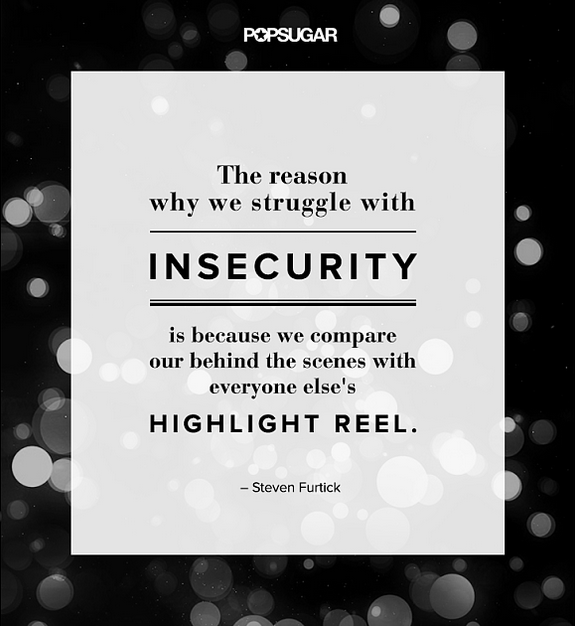
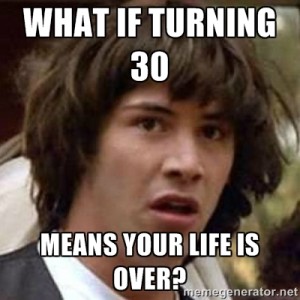

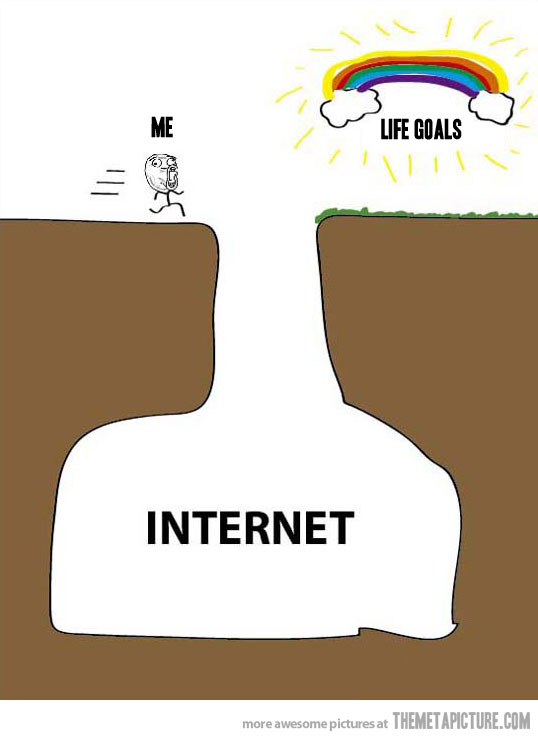


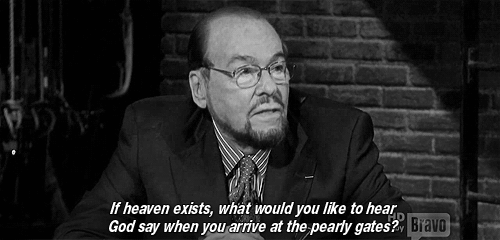

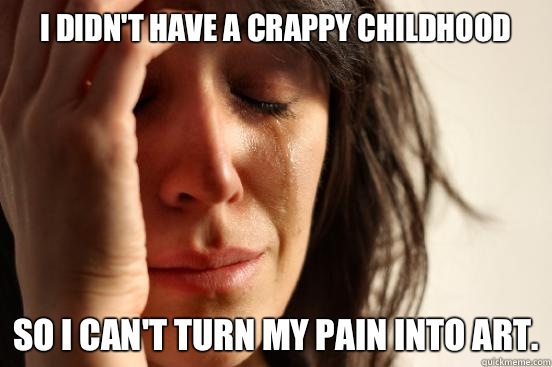 If we’re honest, we like to use their painful history as a tool, or worse, a weapon. We lord it over people or try to use it to further our careers and social standing. In reality this kind of use of our pain is almost always toxic and usually won’t create any sustaining foundations on which these structures can last. This is why many popular musicians have such tragic lives. They often start off with the usual issues we all have: issues with their family, faith, & finances. Once they’ve worked out their finances they have a choice to move onto their family and faith or they can start inventing new problems. They don’t want to be made well.
If we’re honest, we like to use their painful history as a tool, or worse, a weapon. We lord it over people or try to use it to further our careers and social standing. In reality this kind of use of our pain is almost always toxic and usually won’t create any sustaining foundations on which these structures can last. This is why many popular musicians have such tragic lives. They often start off with the usual issues we all have: issues with their family, faith, & finances. Once they’ve worked out their finances they have a choice to move onto their family and faith or they can start inventing new problems. They don’t want to be made well.